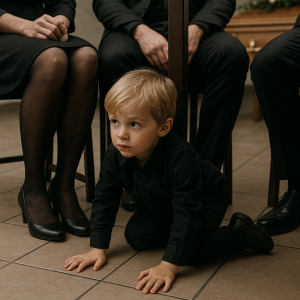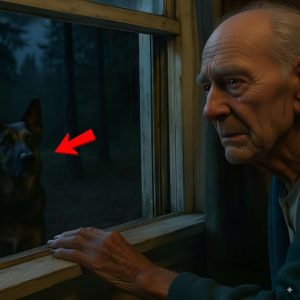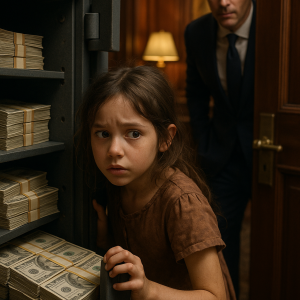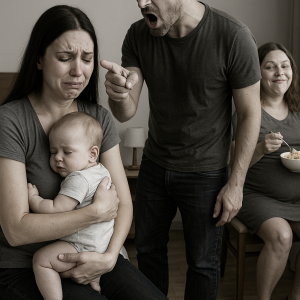At my brother’s wedding, I was told to “stand by the wall” so I wouldn’t ruin the pictures. So I walked to the gift table, picked up my envelope, and left.
I’ve always been the quiet one in the family. The observer. The listener. The one who doesn’t cause waves. People like me tend to be overlooked, underestimated. But we also never forget.
My name’s Adam, I’m 29. My brother Nate is two years younger. As kids, we were inseparable, but after college, our paths split. Nate reinvented himself—sales job, slick suits, leased BMW, an Instagram feed full of curated gym shots and recycled motivational quotes. I took another route: engineering degree, steady career, quiet life in a new city. Reliable, unflashy, and real. We still spoke, but it felt more like duty than closeness.
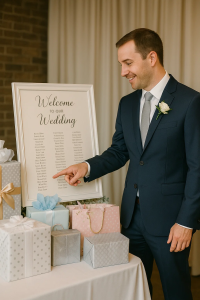
When Nate got engaged to Brianna, who spoke in hashtags and treated my career as quaint rather than respectable, I was still happy for him. I wanted to be supportive. I RSVP’d right away. Offered to help with set-up—politely turned down. Sent $200 toward the bachelor trip I wasn’t even invited to.
The wedding was staged at a lavish vineyard—very on-brand. I rented a suit, booked a hotel, and prepared a gift that meant something: a silver envelope with a $1,500 check inside, money I’d saved to mark this milestone. But as I drove up, unease gnawed at me. Something felt off.
At the entrance, I checked the seating chart. My name wasn’t there. I scanned again. Still nothing. Heart sinking, I asked the planner for help. She gave me a strained smile. “Oh, right—you’re Nate’s brother? There were some last-minute changes. You’ll be over by the west wall, near the photo booth.”
The “west wall” wasn’t a table. It was a few folding chairs shoved by the speakers. My supposed seat was already taken by someone’s plus-one—Tiffany, a stranger. She was sipping champagne comfortably where I should have been.
I found my mom adjusting my dad’s boutonnière. “Hey,” I said, trying to stay calm. “Do you know why I don’t have a seat?” She barely looked up. “Brianna’s family had more people fly in. Just stand by the wall. You’ll still see fine.” “The wall?” I repeated. Dad gave me a sharp look—don’t cause trouble. Mom waved me off. “Don’t sulk and ruin the pictures.”
I wasn’t sulking. I was stunned. Then Brianna appeared, voice sweet but cutting. “Oh, you found a spot. Perfect. We’re just trying to keep the family photos clean. Nothing personal—you’ll still be in the reception shots.”
That was the knife twist. A humiliation so quiet it echoed. I turned, saw the gift table, spotted my silver envelope under a ribbon. I walked over, plucked it out, and headed for the exit.
“Adam, where you going?” a groomsman called. I held up the envelope. “Don’t worry. I’ll stay out of the frame—forever.”
“Adam, wait.”
Nate’s voice stopped me. He hurried over, tux perfect, champagne in hand, looking confused. “Come on, man. Don’t do this. It’s not that serious.”
“Not that serious,” I repeated.
“Yeah, it’s just seating,” he said. “Brianna’s family flew in from Portugal. We had to make space.”
I gave a sharp laugh. “So I get shoved onto a folding chair and hope nobody thinks I’m the DJ?”
“Stop being dramatic. You’re making this about you,” he shot back.
That line landed hard. I never made anything about me. Maybe that was the problem. I was so used to being sidelined that they assumed I’d accept it forever.
“I flew here. I rented a hotel. I bought a suit. I brought $1,500 for you,” I said, holding up the envelope. “And I realized something: I’m not your brother today. I’m just background.”
He clenched his jaw. “You’re blowing this out of proportion.”
“No,” I said. “You already did. You just didn’t expect me to notice.”
When he muttered that it was “Brianna’s call,” that the photos had to be “aesthetic, clean,” I stepped closer. “I didn’t expect a spotlight. I didn’t expect a toast. I expected a seat. A sign that I mattered enough to be here.”
“You do matter,” he mumbled.
“Then why didn’t you act like it?”
Guests were watching. His curated, Instagram-ready wedding was unraveling—not because I was throwing a scene, but because I refused to disappear quietly.
“If this is about the money—” he began.
“It’s about respect,” I cut in. “And today proved I don’t have any from you.”
I left before he could answer.
Back at my hotel, I tore up the note I’d written about being proud of him. Later, when I turned my phone back on, it was buzzing with missed calls. The last text, from Brianna: You really ruined everything today.
And just like that, the guilt vanished. No—I hadn’t ruined anything. I’d revealed it.
The next morning, I drove away. My mom’s texts shifted from scolding to pleading: Family means making sacrifices, Adam.
But what had Nate ever sacrificed? His photos were intact. His “perfect day” was untouched. Meanwhile, I had been sacrificing for years—quietly co-signing his failing business loan, covering late payments, even wiring him $3,000 once without a word. All I ever got in return was a lazy, Thanks, bro.
That $1,500 check wasn’t just money. It was me drawing a line. And for the first time, I saw the truth—they hadn’t only forgotten my seat. They’d forgotten my place in his life.
So I acted. I used my co-signer rights to send the bank a formal notice: I was withdrawing. Effective immediately, I was no longer backing Nate’s business. I copied him on the email.
An hour later, the call came. “Adam, did you just pull out of the loan?” His voice was tight.
“Yes.”
“Why?”
“You’re married now. Time to stand on your own.”
“Come on. Don’t be petty.”
“This isn’t petty,” I said. “It’s overdue.”
“Are you seriously doing this because of a chair?”
“No,” I answered. “I’m doing this because of a pattern. The chair was just the last straw.”
“You didn’t even ask if I was okay when I left,” I added. “You only called because you needed something.”
Silence. Then: “So this is permanent?”
“That depends on you,” I said—and hung up.
I didn’t feel triumphant. Just exhausted, like I’d finally set down a burden I’d been carrying too long.
Days later, my cousin Melissa messaged me: Were you also asked not to be in the family photos? That word—also—stopped me cold.
She explained: Brianna had reshuffled seating two days before to “optimize the aesthetic.” Cousins were pushed to the sidelines, plus-ones got prime seats, some weren’t even offered drinks. It wasn’t just me. The whole family had been pushed aside for the sake of curated photos.
Scrolling Brianna’s Instagram later confirmed it. Dozens of glossy shots. Hashtags about “forever.” Not one picture of our family. Not even our parents.
This wasn’t a wedding. It was a photoshoot with vows.
When I confronted my parents, they deflected at first. But when I revealed I’d been covering Nate’s business loan for 18 months, their silence said everything. Dad accused me of sabotage. “No,” I told him. “I just stopped protecting him.”
The fallout spread fast—angry calls from Brianna’s father, cousins hosting a brunch to compare notes, Nate leaving voicemails that swung from rage to apology.
At that brunch, Melissa looked at me and said, “Thank you for walking out. We were all thinking it. You were the only one who did.”
Three weeks later, a letter from Nate arrived. No outright apology, but one line stood out: I thought keeping the peace meant avoiding conflict. Now I see it meant ignoring you. I was wrong.
I haven’t replied yet. Maybe I will someday. But I know this: I’m not the forgotten brother anymore. Not the placeholder pushed to the edges.
I am Adam. And for the first time, I chose not to fade into the background.

